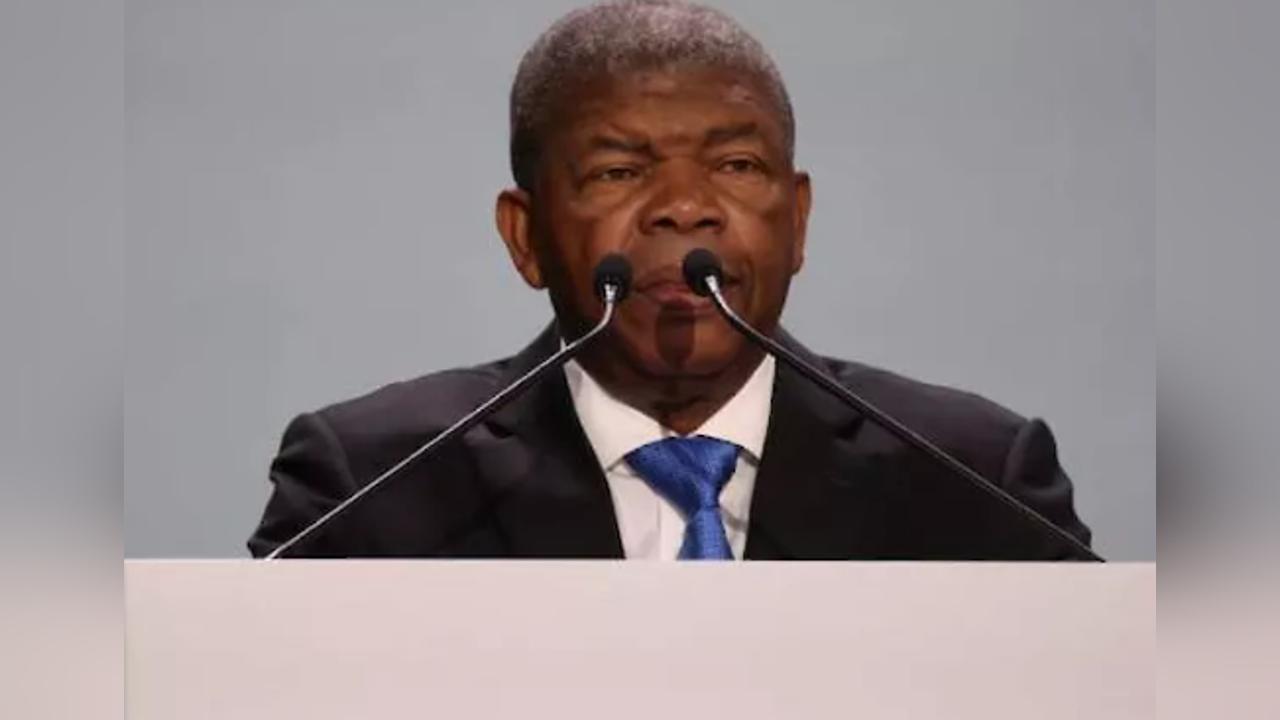Africa-Press – Angola. The Angolan head of state and president of the African Union, João Lourenço, called on Monday for the definition of more agile and functional mechanisms for mobilizing financial resources to meet the recurring challenges faced by developing countries.
In his speech at the 4th International Conference on Financing for Development, being held in Seville, Spain, under the auspices of the United Nations, the AU president pointed to climate shocks, fluctuations in commodity prices, erosion of confidence in multilateral system and, above all, the unsustainable weight of sovereign debt, which consumes more resources than those earmarked for health and education combined and drastically limits the room for manoeuvre to finance development.
Lourenço said these aspects constitute a clear obstacle to the realization of the Sustainable Development Goals of Agenda 2030 and the fulfillment of Agenda 2063, which express the common commitment to building a fairer, more inclusive and more resilient world.
President João Lourenço stressed that there will be no development on the African continent without solid and functional infrastructures, considering the small capacity for producing and transporting electricity, poor network of roads and motorways linking African countries.
The low investment in telecommunications and information technologies and others of equivalent magnitude, the AU president said, these are factors that hinder economic growth and development, as they seriously condition trade and industry, the movement of people and goods, agriculture and job creation.
According to João Lourenço, this is why the African Union, at its summit in February this year, decided to hold a major conference on ‘Infrastructure as a Development Factor in Africa’, to be held in Luanda (Angola) in October this year.
Lourenço explained that the purpose of the conference is to show international partners the mapping that has already been carried out of the needs in this area for public or public-private investment in infrastructure to attract and mobilize resources for the realization of this ‘great ambition’, which will produce considerable benefits and advantages for all parties involved.
Reforms in the financial system
The President of the African Union argued that major investments in infrastructure in Africa require a financing model more adapted to the economic conditions of African countries, which will require a rethink of the current financial architecture, which can always take into account the continent’s priorities, which are often neglected.
In light of these facts, ‘it seems fundamental and urgent to us, in order to do justice to the concerns about support for Africa’s development that are being repeated in the various forums where the issue is discussed, that we look deeply into the issue of the reforms that are needed in the international financial system, in which those most in need must play an active role and be involved in the decision-making processes’ the AU president said.
João Lourenço explained that only with these conditions in place will it be possible to accomplish the objectives set out in the development agendas mentioned, so as to avoid the Sustainable Development Goals becoming a mere statement of good intentions.
Africa’s debt
According to the AU chairperson, in addition to all of the above, there is the issue of Africa’s debt, which has a considerable negative impact on the implementation of the continent’s program, as it acts as a brake on development, due to the shortage of financial resources that results from it and limits its capacity to invest in key sectors of the economy, with very bad repercussions on the social situation of African countries.
In view of this problem, he considered the Lomé Declaration on African Debt, adopted in May 2025 by the Heads of State and Government of the continent, to be very timely, as it represents a milestone in the construction of a common African position.
Lourenço pointed out that this legal tool contains concrete proposals to tackle the debt crisis, including the creation of fairer and more transparent multilateral restructuring mechanisms, automatic debt servicing suspension clauses in the event of external shocks and encouraging the use of local currency in order to reduce exposure to exchange rate risk.
About the summit
Organized by the UN, the conference brings together more than 60 world leaders and 4,000 representatives of civil society, with the aim of debating solutions to global development challenges, in a context marked by deep inequalities between rich and developing countries.
Taking place under the motto equity and economic justice, the meeting aims to reflect on new forms of financing and international cooperation that can help reduce the gap between the more developed global North and the global South, which still faces multiple obstacles to sustainable progress.
The Seville conference takes place at a time of hope and reflection, ten years on from the adoption of the Addis Ababa Action Agenda in 2015.
This agreement, promoted by the UN, outlines strategies for financing the Sustainable Development Goals (SDGs), emphasizing the need to boosting public and private financial flows, both national and international levels.
According to the UN, the current system has failed to fulfill the promises made to the most vulnerable populations.
The conference agenda includes commitments to strengthen domestic resource mobilization, improve international cooperation and tackle systemic issues such as debt sustainability.
The current financing gap for development is estimated at 4 trillion US dollars a year.
Among the central themes of the debate are rising debt, falling investment and reduced foreign financial aid.
The success of the meeting will depend on the collective ability to mobilize finance on a large scale and reform the rules of the global financial system, putting people’s needs at the centre of decisions.
For More News And Analysis About Angola Follow Africa-Press






